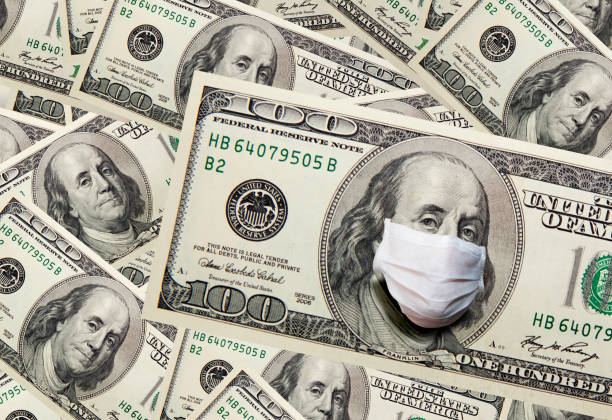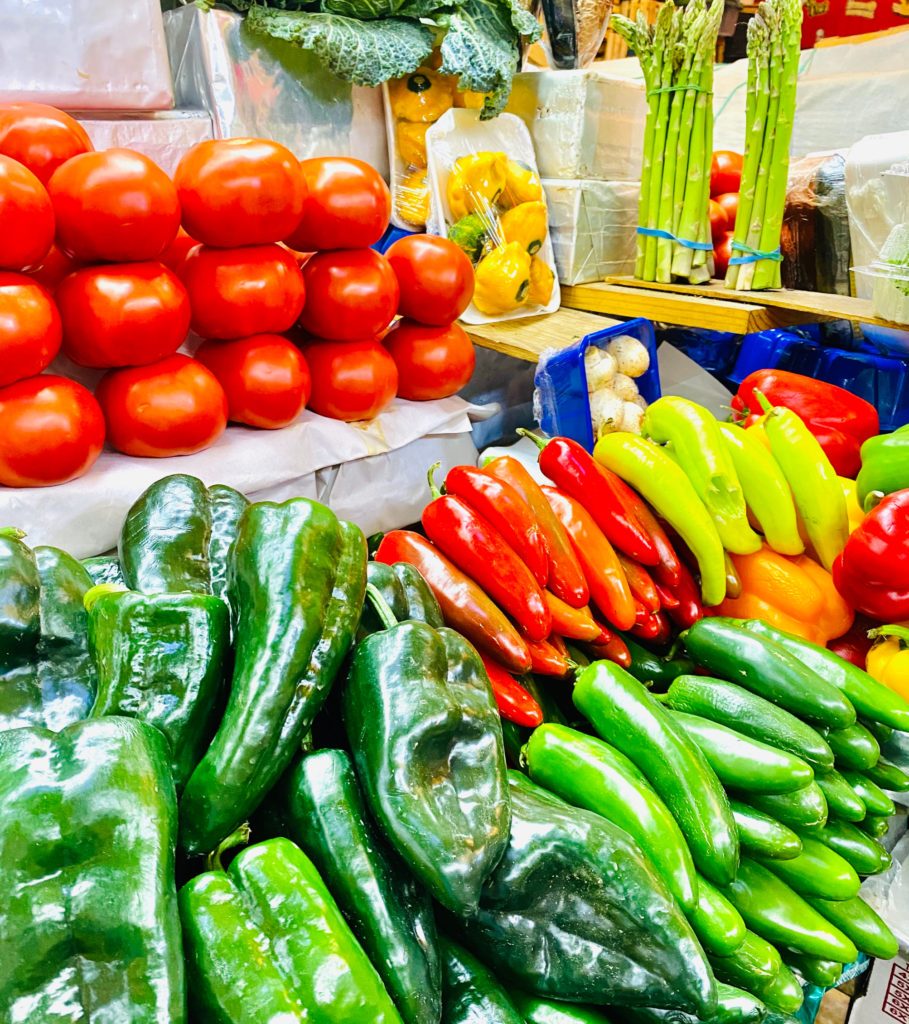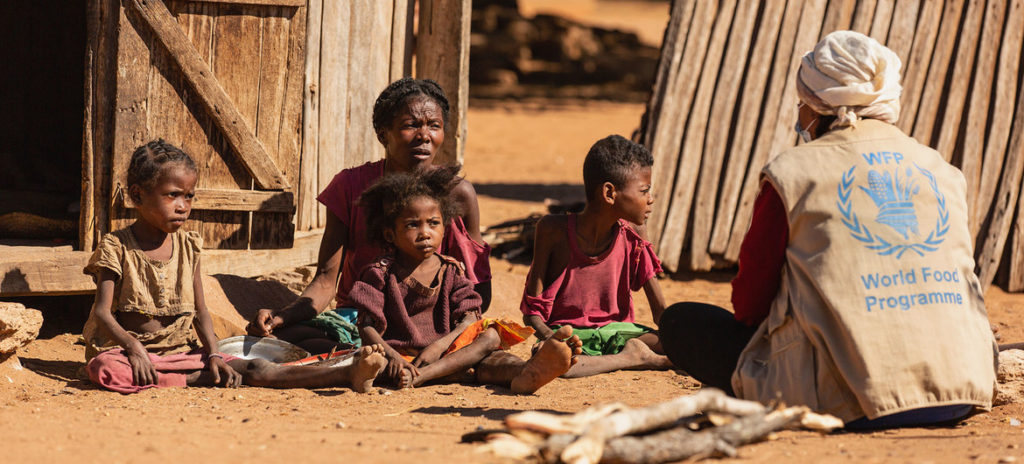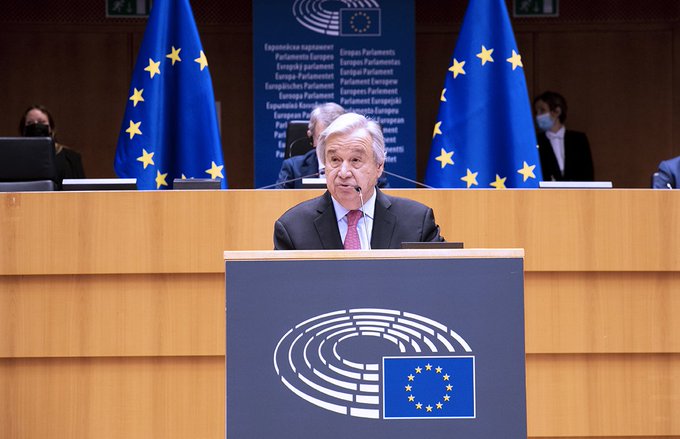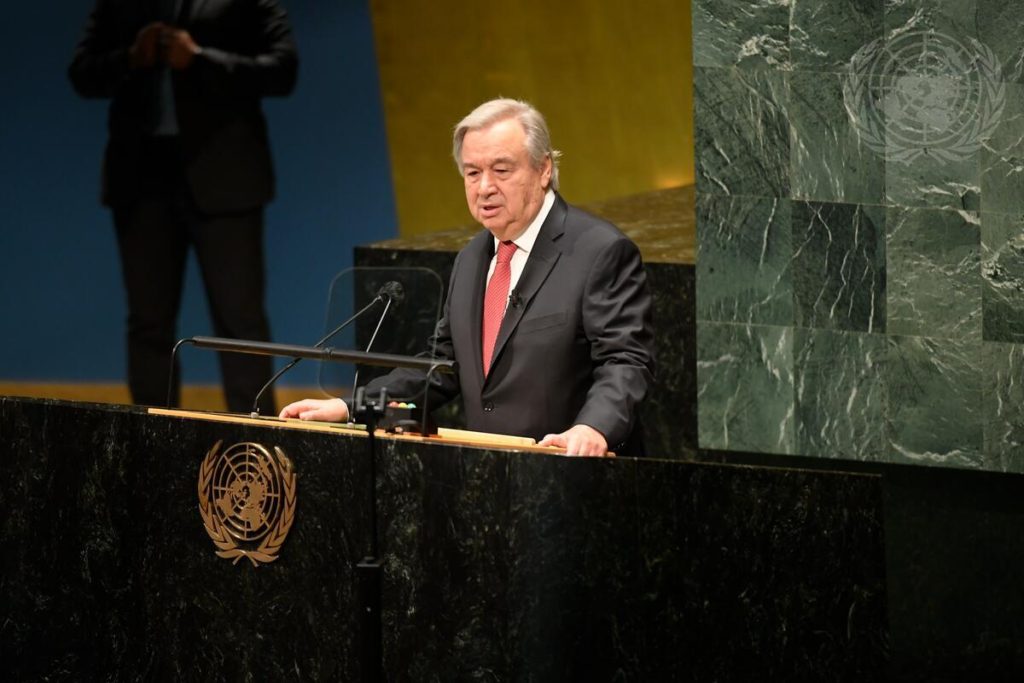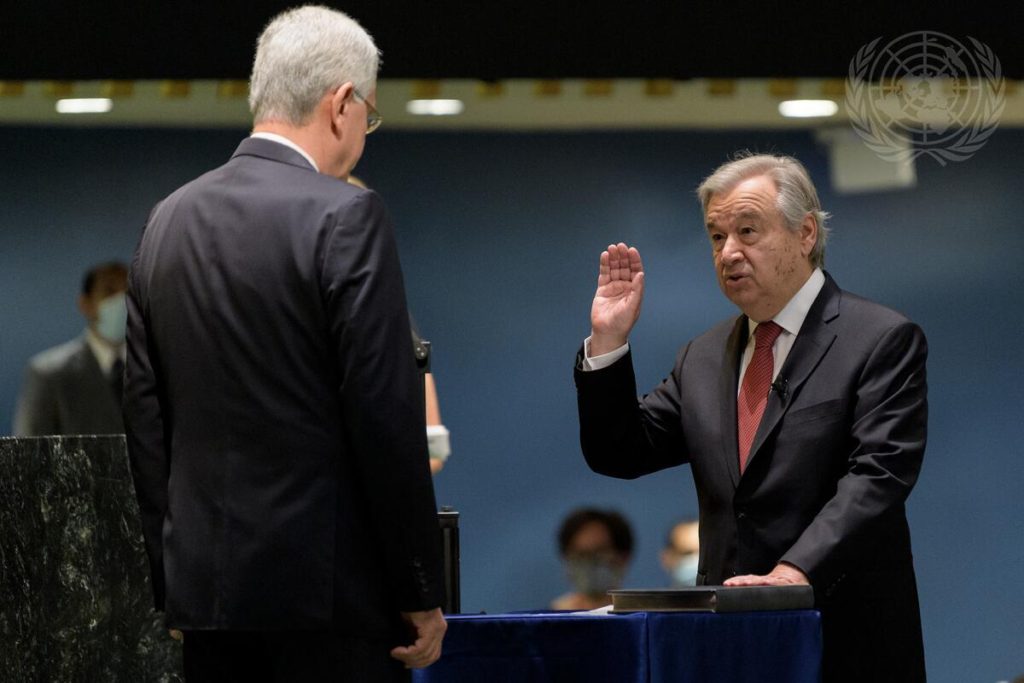(Editor’s note: this press release dated July 12, 2021, from the UN Convention on Biodiversity is published in full on this website for the benefits of media organizations and readers)
Still a work in progress, the Global Biodiversity Framework will ultimately advance to
UN Convention on Biological Diversity’s COP15 for consideration by 196 member parties
“The 1st Draft Of The Post-2020 Global Biodiversity Framework” is available for media preview at https://bit.ly/3hFgz2e
Elizabeth Maruma Mrema, CBD Executive Secretary, Basile van Havre and Francis Ogwal, co-chairs of the Open-Ended Working Group on the Post-2020 Global Biodiversity Framework, and other officials are available for interviews.
21 targets, 10 ‘milestones’ proposed for 2030 en route to ‘living in harmony with nature’
by 2050; Include conserving and protecting at least 30% of Earth’s lands and oceans
The UN Convention on Biological Diversity (CBD) Secretariat released (July 12, 2021) the first official draft of a new Global Biodiversity Framework to guide actions worldwide through 2030 to preserve and protect Nature and its essential services to people.
The framework includes 21 targets for 2030 that call for, among other things:
At least 30% of land and sea areas global (especially areas of particular importance for biodiversity and its contributions to people) conserved through effective, equitably managed, ecologically representative and well-connected systems of protected areas (and other effective area-based conservation measures)
A 50% of greater reduction in the rate of introduction of invasive alien species, and controls or eradication of such species to eliminate or reduce their impacts
Reducing nutrients lost to the environment by at least half, and pesticides by at least two thirds, and eliminating the discharge of plastic waste
Nature-based contributions to global climate change mitigation efforts of least 10 GtCO2e per year, and that all mitigation and adaptation efforts avoid negative impacts on biodiversity
Redirecting, repurposing, reforming or eliminating incentives harmful for biodiversity, in a just and equitable way, reducing them by at least $US 500 billion per year
A $US 200 billion increase in international financial flows from all sources to developing countries
More than two years in development, the Framework will undergo further refinement during online negotiations in late summer before being presented for consideration at CBD’s next meeting of its 196 parties at COP15, scheduled for Kunming, China October 11-24.
The Four Goals for 2050:
The draft framework proposes four goals to achieve, by 2050, humanity “living in harmony with nature,” a vision adopted by the CBD’s 196 member parties in 2010.
Goal A: The integrity of all ecosystems is enhanced, with an increase of at least 15% in the area, connectivity and integrity of natural ecosystems, supporting healthy and resilient populations of all species, the rate of extinctions has been reduced at least tenfold, and the risk of species extinctions across all taxonomic and functional groups, is halved, and genetic diversity of wild and domesticated species is safeguarded, with at least 90% of genetic diversity within all species maintained.
Goal B: Nature’s contributions to people have been valued, maintained or enhanced through conservation and sustainable use supporting the global development agenda for the benefit of all;
Goal C: The benefits from the utilization of genetic resources are shared fairly and equitably, with a substantial increase in both monetary and non-monetary benefits shared, including for the conservation and sustainable use of biodiversity.
Goal D: The gap between available financial and other means of implementation, and those necessary to achieve the 2050 Vision, is closed.
Milestones to be reached by 2030
The four goals each have 2-3 broad milestones to be reached by 2030 (10 milestones in all):
Goal A:
Milestone A.1 Net gain in the area, connectivity and integrity of natural systems of at least 5%.
Milestone A.2 The increase in the extinction rate is halted or reversed, and the extinction risk is reduced by at least 10%, with a decrease in the proportion of species that are threatened, and the abundance and distribution of populations of species is enhanced or at least maintained.
Milestone A.3 Genetic diversity of wild and domesticated species is safeguarded, with an increase in the proportion of species that have at least 90% of their genetic diversity maintained.
Goal B:
Milestone B.1 Nature and its contributions to people are fully accounted and inform all relevant public and private decisions.
Milestone B.2 The long-term sustainability of all categories of nature’s contributions to people is ensured, with those currently in decline restored, contributing to each of the relevant Sustainable Development Goals.
Goal C:
Milestone C.1 The share of monetary benefits received by providers, including holders of traditional knowledge, has increased.
Milestone C.2 Non-monetary benefits, such as the participation of providers, including holders of traditional knowledge, in research and development, has increased.
Goal D:
Milestone D.1 Adequate financial resources to implement the framework are available and deployed, progressively closing the financing gap up to at least US $700 billion per year by 2030.
Milestone D.2 Adequate other means, including capacity-building and development, technical and scientific cooperation and technology transfer to implement the framework to 2030 are available and deployed.
Milestone D.3 Adequate financial and other resources for the period 2030 to 2040 are planned or committed by 2030.
21 “Action Targets” for 2030
The framework then lists 21 associated “action targets” for 2030:
Reducing threats to biodiversity
Target 1
Ensure that all land and sea areas globally are under integrated biodiversity-inclusive spatial planning addressing land- and sea-use change, retaining existing intact and wilderness areas.
Target 2
Ensure that at least 20 per cent of degraded freshwater, marine and terrestrial ecosystems are under restoration, ensuring connectivity among them and focusing on priority ecosystems.
Target 3
Ensure that at least 30 per cent globally of land areas and of sea areas, especially areas of particular importance for biodiversity and its contributions to people, are conserved through effectively and equitably managed, ecologically representative and well-connected systems of protected areas and other effective area-based conservation measures, and integrated into the wider landscapes and seascapes.
Target 4
Ensure active management actions to enable the recovery and conservation of species and the genetic diversity of wild and domesticated species, including through ex situ conservation, and effectively manage human-wildlife interactions to avoid or reduce human-wildlife conflict.
Target 5
Ensure that the harvesting, trade and use of wild species is sustainable, legal, and safe for human health.
Target 6
Manage pathways for the introduction of invasive alien species, preventing, or reducing their rate of introduction and establishment by at least 50 per cent, and control or eradicate invasive alien species to eliminate or reduce their impacts, focusing on priority species and priority sites.
Target 7
Reduce pollution from all sources to levels that are not harmful to biodiversity and ecosystem functions and human health, including by reducing nutrients lost to the environment by at least half, and pesticides by at least two thirds and eliminating the discharge of plastic waste.
Target 8
Minimize the impact of climate change on biodiversity, contribute to mitigation and adaptation through ecosystem-based approaches, contributing at least 10 GtCO2e per year to global mitigation efforts, and ensure that all mitigation and adaptation efforts avoid negative impacts on biodiversity.
Meeting people’s needs through sustainable use and benefit-sharing
Target 9
Ensure benefits, including nutrition, food security, medicines, and livelihoods for people especially for the most vulnerable through sustainable management of wild terrestrial, freshwater and marine species and protecting customary sustainable use by indigenous peoples and local communities.
Target 10
Ensure all areas under agriculture, aquaculture and forestry are managed sustainably, in particular through the conservation and sustainable use of biodiversity, increasing the productivity and resilience of these production systems.
Target 11
Maintain and enhance nature’s contributions to regulation of air quality, quality and quantity of water, and protection from hazards and extreme events for all people.
Target 12
Increase the area of, access to, and benefits from green and blue spaces, for human health and well-being in urban areas and other densely populated areas.
Target 13
Implement measures at global level and in all countries to facilitate access to genetic resources and to ensure the fair and equitable sharing of benefits arising from the use of genetic resources, and as relevant, of associated traditional knowledge, including through mutually agreed terms and prior and informed consent.
Tools and solutions for implementation and mainstreaming
Target 14
Fully integrate biodiversity values into policies, regulations, planning, development processes, poverty reduction strategies, accounts, and assessments of environmental impacts at all levels of government and across all sectors of the economy, ensuring that all activities and financial flows are aligned with biodiversity values.
Target 15
All businesses (public and private, large, medium and small) assess and report on their dependencies and impacts on biodiversity, from local to global, and progressively reduce negative impacts, by at least half and increase positive impacts, reducing biodiversity-related risks to businesses and moving towards the full sustainability of extraction and production practices, sourcing and supply chains, and use and disposal.
Target 16
Ensure that people are encouraged and enabled to make responsible choices and have access to relevant information and alternatives, taking into account cultural preferences, to reduce by at least half the waste and, where relevant the overconsumption, of food and other materials.
Target 17
Establish, strengthen capacity for, and implement measures in all countries to prevent, manage or control potential adverse impacts of biotechnology on biodiversity and human health, reducing the risk of these impacts.
Target 18
Redirect, repurpose, reform or eliminate incentives harmful for biodiversity, in a just and equitable way, reducing them by at least US$ 500 billion per year, including all of the most harmful subsidies, and ensure that incentives, including public and private economic and regulatory incentives, are either positive or neutral for biodiversity.
Target 19
Increase financial resources from all sources to at least US$ 200 billion per year, including new, additional and effective financial resources, increasing by at least US$ 10 billion per year international financial flows to developing countries, leveraging private finance, and increasing domestic resource mobilization, taking into account national biodiversity finance planning, and strengthen capacity-building and technology transfer and scientific cooperation, to meet the needs for implementation, commensurate with the ambition of the goals and targets of the framework.
Target 20
Ensure that relevant knowledge, including the traditional knowledge, innovations and practices of indigenous and local communities with their free, prior, and informed consent, guides decision‑making for the effective management of biodiversity, enabling monitoring, and by promoting awareness, education and research.
Target 21
Ensure equitable and effective participation in decision-making related to biodiversity by indigenous peoples and local communities, and respect their rights over lands, territories and resources, as well as by women and girls, and youth.
* * * * *
Says CBD Executive Secretary Elizabeth Maruma Mrema: “Urgent policy action globally, regionally and nationally is required to transform economic, social and financial models so that the trends that have exacerbated biodiversity loss will stabilize by 2030 and allow for the recovery of natural ecosystems in the following 20 years, with net improvements by 2050.”
“The framework aims to galvanize this urgent and transformative action by Governments and all of society, including indigenous peoples and local communities, civil society, youth and businesses and financial institutions. It will be implemented primarily through national-level activities, supported by subnational, regional and global-level actions.”
“This is a global, outcome-oriented framework for the Convention’s 196 Parties to develop national and regional goals and targets, to update national strategies and action plans as needed, and to facilitate regular monitoring and review of progress at the global level.”
Implementation
The draft Global Biodiversity Framework notes that effective implementation requires mobilizing resources from both the public and private finance sectors, ongoing identification of risk associated with biodiversity loss capacity development, technical and scientific cooperation, technology transfer and innovation.
It also calls for integration with relevant multilateral environmental agreements and other relevant international processes, including the 2030 Agenda for Sustainable Development, and strengthening cooperation.
Successful implementation will also depend on effective outreach, awareness and uptake by all stakeholders, a comprehensive system for planning, monitoring, reporting and review that allows for transparent communication of progress, rapid course correction, and timely input in the preparation of a post-2030 Global Biodiversity Framework.
* * * * *
Background
Biodiversity and its benefits are fundamental to human well-being and a healthy planet. Despite ongoing efforts, biodiversity is deteriorating worldwide and this decline is projected to continue or worsen under business-as-usual scenarios.
The post-2020 Global Biodiversity Framework builds on the Strategic Plan for Biodiversity 2011-2020 and sets out an ambitious plan to implement broad-based action to bring about a transformation in society’s relationship with biodiversity and to ensure that, by 2050, the shared vision of living in harmony with nature is fulfilled.
The draft framework reflects input from the second meeting of a Working Group managing the framework’s creation, as well as submissions received. The draft will be further updated in late summer with the benefit of input from the 24th meeting of the Subsidiary Body on Scientific, Technical and Technological Advice and the 3rd meeting of the Subsidiary Body in Implementation, as well as the advice from thematic consultations.
Relationship with 2030 Agenda for Sustainable Development
The framework will contribute to the implementation of the 2030 Agenda for Sustainable Development. At the same time, progress towards the Sustainable Development Goals will help to provide the conditions necessary to implement the framework.
Theory of change
The framework’s theory of change assumes that transformative actions are taken to (a) put in place tools and solutions for implementation and mainstreaming, (b) reduce the threats to biodiversity and (c) ensure that biodiversity is used sustainably in order to meet people’s needs and that these actions are supported by (i) enabling conditions, and (ii) adequate means of implementation, including financial resources, capacity and technology. It also assumes that progress is monitored in a transparent and accountable manner with adequate stocktaking exercises to ensure that, by 2030, the world is on a path to reach the 2050 Vision for Biodiversity.
The theory of change for the framework acknowledges the need for appropriate recognition of gender equality, women’s empowerment, youth, gender-responsive approaches and the full and effective participation of indigenous peoples and local communities in the implementation of this framework. Further, it is built upon the recognition that its implementation will be done in partnership with many organizations at the global, national and local levels to leverage ways to build a momentum for success. It will be implemented taking a rights-based approach and recognizing the principle of intergenerational equity.
The theory of change is complementary to and supportive of the 2030 Agenda for Sustainable Development. It also takes into account the long-term strategies and targets of other multilateral environment agreements, including the biodiversity-related and Rio conventions, to ensure synergistic delivery of benefits from all the agreements for the planet and people.
* * * * *
About the UN Convention on Biological Diversity
Opened for signature at the Earth Summit in Rio de Janeiro in 1992, and entering into force in December 1993, the Convention on Biological Diversity is an international treaty for the conservation of biodiversity, the sustainable use of the components of biodiversity and the equitable sharing of the benefits derived from the use of genetic resources.
With 196 Parties, the Convention has near universal participation.
The Convention seeks to address all threats to biodiversity and ecosystem services, including threats from climate change, through scientific assessments, the development of tools, incentives and processes, the transfer of technologies and good practices and the full and active involvement of relevant stakeholders including indigenous and local communities, youth, NGOs, women and the business community.
The Cartagena Protocol on Biosafety and the Nagoya Protocol on Access and Benefit Sharing are supplementary agreements to the Convention. The Cartagena Protocol, which entered into force on 11 September 2003, seeks to protect biological diversity from the potential risks posed by living modified organisms resulting from modern biotechnology.
The Nagoya Protocol aims at sharing the benefits arising from the utilization of genetic resources in a fair and equitable way, including by appropriate access to genetic resources and by appropriate transfer of relevant technologies. It entered into force on 12 October 2014.
Website: cbd.int
Twitter: @UNBiodiversity
Facebook: facebook.com/UNBiodiversity
Linkedin: linkedin.com/company/unbiodiversity
* * * * *
Terry Collins & Assoc. | www.tca.tc | @TerryCollinsTC | LinkedIn.com/in/terrycollins, Toronto, M6R1L8 Canada
Update Profile | Constant Contact Data Notice
Sent by tc@tca.tc powered by
Trusted Email from Constant Contact – Try it FREE today.
Try email marketing for free today!
Contacts:
David Ainsworth, +1-514-287-7025, david.ainsworth@cbd.int
Johan Hedlund, +1-514 287-6670; johan.hedlund@cbd.int
Terry Collins, +1-416-878-8712 (m), tc@tca.tc
Read more news on Environment here
United Nations correspondent journalists – United Nations correspondent journalists – United Nations correspondent journalists
United Nations journalism articles – United Nations journalism articles – United Nations journalism articles


